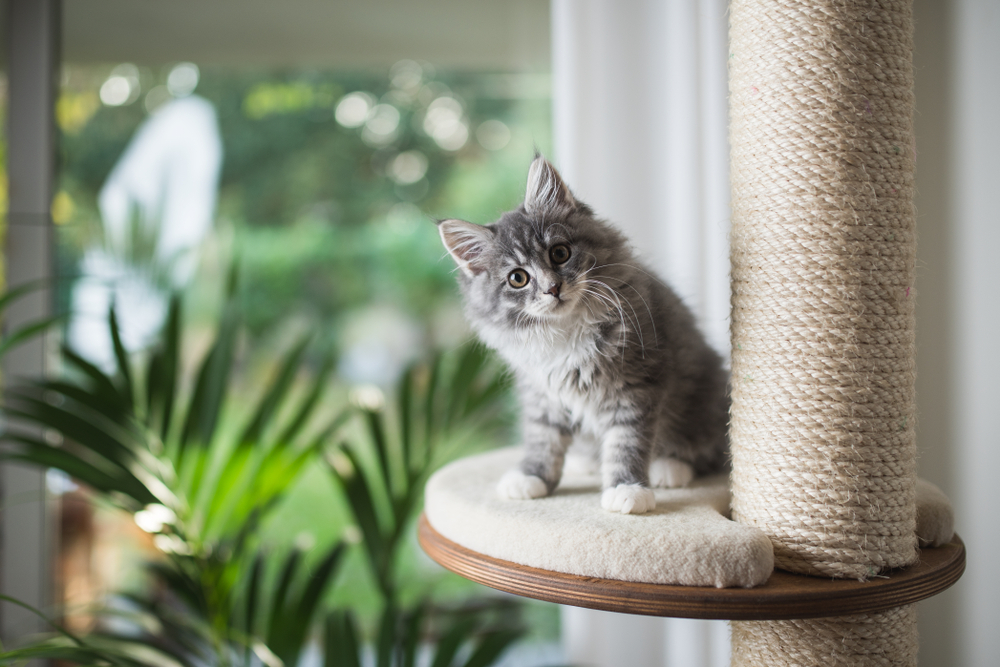Are You Kitten Me? Kitten Training for Beginners

When you encounter a kitten, it is hard to focus on anything but their extreme cuteness. The tiny toe beans and big eyes are sometimes so distracting it is hard to think about anything else. Kitten training is an important element of welcoming a baby cat into your home, though. With a little bit of patience and effort, you can train your kitten to grow into a well-adjusted cat.
Kitten Training Basics
Before you start planning out tricks or more complex behaviors to teach your kitten, start with the basics. Cats of any age get anxious when they experience a situation they are not used to. Familiarizing your kitten with some basic situations will make your life much easier in the future.
These include:
- Playing with your kitten’s paws regularly so they do not freak out during a nail trim
- Holding kitty in different positions so they are not terrified at the vet
- Placing the carrier out so your kitten can get comfortable with it and doesn’t only associate it with travel
- Touching your kitten’s teeth so you can get them used to future dental care
Kitten training basics also include litter training. This should start once kittens are weaned and eating solid food. Thankfully kittens are instinctively drawn to wanting to cover their waste with loose material. If the mother cat is there, they will usually model their own behavior after their mother’s. If the mother cat isn’t present, choose a private location to place an uncovered litter box. Show the litter box to your kitten on the first day and place them there several times over the next few days until they get it. And then praise them and provide a treat if they use it.
The more you can introduce to your kitten early, the better he or she will respond when faced with it in the future.
Kitten Training: The Need for Socialization
When you are teaching your kitten the basics of coexisting with humans, it is important to consider socialization. If you are the only person or animal your cat sees on a regular basis, she might have serious anxiety issues around new people or pets in the future. Try to invite people over to play with your kitten starting in the early days of your time together. If you have other animals in the home, introduce them slowly so they can get used to each other. Use treats or toys to help your kitten associate these times with positive reactions.
Redirecting Unpleasant Behaviors
Kittens are natural hunters that biologically have certain behaviors (like scratching and pouncing) that might not be ideal in certain parts of your house. Although you do not want to train your cat to completely stop doing them, you can teach them how to redirect these energies in healthy ways. Fill your home with scratching posts and pads where your kitten can scratch their heart out without damaging your furniture. If you see your kitten scratching the couch or floor, bring one of these over and encourage them to use it instead. Stock up on interactive toys that help kitty redirect these natural instincts into constructive (and adorable) ways. You might even want to use a laser pointer to help your kitten expel energy so they sleep through the night.
As part of kitten training, you want to teach them where it is okay to jump up and where it is not. Praise them when they jump onto your sofa or lap if that is permitted, but remove them with mild scolding from kitchen countertops and other off-limit surfaces. The handy, humane spray water bottle will help reinforce that lesson.
Oakland Veterinary Referral Services is here to help you keep your cats healthy throughout every stage of life. From alternative medicine to surgery, our specialized veterinary services give you a little extra help when you need it. To learn more about our vast list of services or to schedule an appointment, please call (248) 334-6877.


